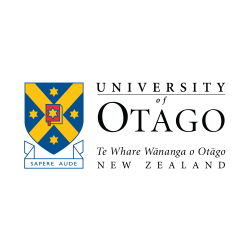
Contemporary Assessment Practices in University: Impact on Teachers and Students
Status
Completed: 2 May 2014
Project Details
A project completed in 2014, undertaken by the University of Otago, to examine the impact of high-stakes summative assessment on student learning and teaching at the University of Otago. The term high-stakes summative assessment refers to marking student work when this counts towards the award of a degree.
Aims:
The main aims of the project were to:
- explore how students and academic staff experience a culture of frequent high-stakes summative assessment
- inform practice and policy and directly stimulate organisational change
- contribute to assessment theory and guide future research.
Methodology:
The study used a mixed methods approach involving:
- a review of the literature
- semi-structured interviews were carried out with students and academic staff
- analysing student data using an inductive technique to extract key themes
- analysing data from academics under the key outcomes of the pilot study.
The guiding research question was:
- If all teaching and learning experiences are shaped principally by summative high-stakes assessment, then what is the impact of this on how students and teachers experience higher education?
Team

Professor Tony Harland
Project Leader
University of Otago
Dr Angela McLean
University of Otago
Dr Rob Wass
University of Otago
Ellen Miller
University of Otago
Kwong Nui Sim
University of OtagoStatus
Funding
$19,730.00 (excl GST)
Key Findings
The key findings from the project included:
- Data confirmed the pilot study in that students were fed up with being assessed so frequently but, when questioned about alternatives, preferred the status quo. When asked if they would like to revert to a single exam, virtually no one thought this was a good idea. Grading was linked very closely to motivation to study and students thought that without a grade attached to work, they simply would not do it. It was the key driver for them and they valued being driven, while being fearful that they may not be able to study without this type of assessment. So, they did not like the experience of being continually graded but they did not want to change.
- Academics did not know how many assessment tasks students were undertaking in other papers.
- Academics understood grading as the key driver of student behaviour and saw themselves in a type of arms race with colleagues: if they did not grade work, then students would withdraw their effort and put it into another graded task. Those interviewed perceived that most students would only learn something if they were required to for a summative assessment: if there is no grade attached then students will not ‘learn’ it.
- It was widely believed that if a lecturer did not assess and grade a piece of work, the work would not be done and, if they did not grade, students would put their efforts into another paper.
- Academics’ perceptions were mixed as to whether small, frequent assessment carrying a small percentage or grade, and mark accumulation, was a positive practice or not. Some academics could see that students appreciated the chance to build marks, and this was beneficial to their overall approach to learning. For others, however, small assessment tasks did not promote effective learning in students. Furthermore, some academics expressed concern over the effect of small assessments on critical thinking and skill-building over time.
- Academics did not tend to use non-graded forms of assessment, and some perceived that students are not engaging in post-assessment feedback. Despite formative tasks being an important opportunity to ‘learn through assessment’, it seemed that such tasks were not broadly embedded in curricula.
Key Recommendations
The following recommendations from the project should be useful for any institution that recognises its internal assessment frequency and grading practices are not suitable for the desired outcomes for student learning:
Maintain a balance | Maintain a balance between internal assessment and assessment through exams. Endeavour to reduce the number of internal assessments to a minimum and have larger tasks worth more marks. Require larger more integrated assessments that test a range of skills, abilities and knowledge forms.
Integrate learning in the task | Ensure learning is integrated in the task by requiring assessment of larger amounts and types of knowledge, skills and attributes typically expected of a graduate. For example, projects can be done in stages (with formative evaluation) but the final product receives the grade.
Focus assessment on desired outcomes | Align assessment tasks with the most important outcomes for learning, for example, if critical thinking is seen as foundational to learning a subject, this should be assessed at each opportunity. Ensure that assessment leads to deep approaches to learning that also encourage autonomy, life-long learning, independence and responsibility as desired graduate outcomes.
Motivate students to learn | Do not use assessment solely as a behavioural mechanism that encourages students to work or motivates them to study. Motivate students to learn for reasons other than frequent assessment and fear of failure. A change will come about with opportunities to take a deep approach to learning.
Communicate assessment practices | Communicate assessment practices within and between papers. In a system of education that gives each student a great deal of free choice in what papers to study, coordination will be required between departments.
Planning student workload | Ensure that students do not get all their assessments at the same time and that they have ample notice to help them plan. Also, use course requirements (sometimes called terms) as a behavioural control rather than ‘busy work’ that carries a grade.
Create learning opportunities | Create new spaces that will allow academics and students to provide feedback to help learning. Use self- and peer-review alongside lecturer comments and offer opportunities to re-submit work before a final grade is given. In this way, assessment becomes a powerful learning opportunity.
A research report prepared by Tony Harland, Angela McLean, Rob Wass, Ellen Miller and Kwong Nui Sim.
(PDF,1.3 MB, 34-pages).
- 2 May 2014